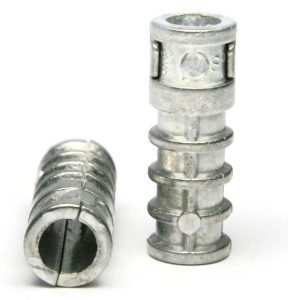buy elevator bolts
Oct . 13, 2024 19:40 Back to list
buy elevator bolts
Understanding the Importance and Use of Elevator Bolts
When it comes to industrial applications, fasteners play a critical role in ensuring the safety, efficiency, and reliability of machinery. Among various types of fasteners, elevator bolts are particularly significant due to their specific design and function. This article explores the nature, applications, and reasons for purchasing elevator bolts.
What are Elevator Bolts?
Elevator bolts are specialized fasteners that possess a flat, large, rounded head and a square neck that helps prevent the bolt from turning when a nut is tightened. This unique design is essential for applications where a broad bearing surface is required, which contributes to distributing the load evenly. The size and shape of the head ensure that the bolt remains in place, even under heavy loads or vibrations, making them ideal for various industrial settings, especially in conveyor systems and elevators.
Applications of Elevator Bolts
Elevator bolts are predominantly used in the agricultural industry, particularly in grain handling and storage systems. They are essential for securing conveyor belts and other equipment where a robust fastening solution is necessary. These bolts can hold together the components of a bucket elevator, which is critical for lifting and transporting bulk materials such as grain, seeds, and feed.
Beyond agriculture, elevator bolts are also used in the manufacturing sector for machinery assembly, in construction for securing structural components, and in various equipment where belt-driven systems are involved. Their resilience and reliability make them a preferred choice in any high-stress environment where equipment must perform consistently.
Factors to Consider When Buying Elevator Bolts
buy elevator bolts

When looking to purchase elevator bolts, several factors should be taken into account
1. Material Elevator bolts are available in various materials, including steel, stainless steel, and sometimes even plastic. The choice of material impacts the bolt's strength, durability, and resistance to environmental factors like corrosion. For most applications, galvanized or stainless steel is preferable due to their strength and resistance to rust.
2. Size and Thread Type It's essential to know the exact size specifications needed for your application, including the diameter and length of the bolt. Additionally, understanding whether you require coarse or fine threads is critical, as this will influence the fit and grip in your application.
3. Load Requirements Assess the load that the bolts will need to handle. This includes considering both static loads (the weight of the items being moved or held) and dynamic loads (forces from moving machinery). Ensure that the selected bolts can withstand the required load without failure.
4. Quantity and Bulk Purchasing If you're involved in a large project, buying in bulk can be cost-effective. Many suppliers offer discounts for larger orders, which can help in reducing overall project costs.
5. Supplier Reputation Always buy from reputable suppliers who provide quality assurance and have positive customer feedback. This can help avoid situations of receiving subpar products that could jeopardize safety and efficiency.
Conclusion
Elevator bolts are integral components in various industries, offering reliability and strength in securing machinery and equipment. Understanding their design, applications, and what to consider when purchasing can significantly impact the safety and efficacy of your projects. Whether you are involved in agriculture, manufacturing, or any other sector that relies on strong mechanical systems, investing in high-quality elevator bolts is essential. Research suppliers, compare materials, and ensure you choose the right specifications to meet your needs. By taking these steps, you can ensure the longevity and reliability of your equipment, ultimately contributing to a more efficient operation.
Latest news
-
High-Quality Panel Stud Bolt Reliable Panel Stud Bolt Factory & Suppliers
NewsJul.08,2025
-
High-Precision Fine Thread Locknuts Manufacturer & Supplier Custom Solutions
NewsJul.08,2025
-
PH Imperial Stud Bolt – High Strength Fasteners from Leading Supplier & Factory
NewsJul.07,2025
-
High-Quality Allen Wrench Bolts Leading Factory, Company & Suppliers
NewsJul.07,2025
-
Wholesale Ball Stud Bolt - High Quality Supplier & Factory Price Reliable Wholesale Ball Stud Bolt Company
NewsJul.06,2025
-
High-Strength Alloy Bolts Manufacturer & Supplier Quality Alloy Fasteners Factory
NewsJul.06,2025
